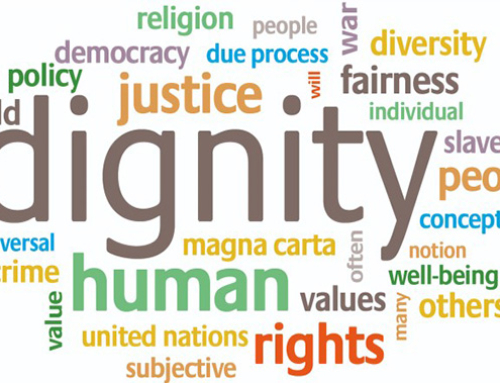Abdessalam Yassine
August 3, 2023
TOEING THE LINE
OF A RIGID TRADITIONALISM
How can we effectively rise up and attain our goals while the albatross of blind following hangs around our necks? It is a burden heavy enough to break our very backs. How can we advocate the Caliphate of the Prophetic method and a future for Islam under a state based on shūrā, justice, and iḥsānwhen we are encumbered with the full weight of our historical legacy? How can we achieve unity and power so that we may convey the Divine message to all mankind? How can we express the needs and aspirations of humanity? How can we affirm the Divine faith that has been revealed to uphold justice for the weak and vulnerable? How can we achieve any of these goals if we continue to uncritically follow mortals who fall short of the perfection of the Qur›ān and the Sunna?(1)
The tyrant’s most dangerous weapon is not advanced armaments or an army of secret police, but the negative force of intellectual complacency and the apathy of weak souls who shrink into the corner and toe the line in order to attain the security of cowards.
Our current regimes boast their “feasts of democracy,” yet we are chased away from such “feasts” as if we were spongers. But what is worst of all is that some of us, afflicted with submissiveness before authority and blind following of Tradition, think of nothing than their personal security, nibbling from the unlawful leftovers of such “feasts” like a pigeon pecking at seeds in the hands of its slaughterer.
This sick mentality casts its dark shadow over the masses of the umma, making it that much more difficult for the advocates of the true faith to expose the age-old collaboration between the tyrants and the custodians of the temples dedicated to false idols – that is, the palace “scholars.”
When I speak of the need to liberate ourselves from blind imitation, I am not advocating discarding the heritage of ijtihād in the jurisprudence left to us by the great men of Islamic history, the righteous scholars. Rather, what I mean is discarding that odious mentality that looks at the Qur›ān and the blessed life of the Prophet with the eye of one who enjoys the comforts of the palace and fails to see with a holistic framework and hence to stand up to falsehood and its perpetrators.
What worldview can liberate us from both a herd mentality and a knee-jerk revolutionarism at the same time? What methodology can enable us to shed the yoke of defeatism while untying the fetters of procrastination so that we can regain the initiative and set up our own “feast” – albeit one based on shūrā, justice, and iḥsān, an invitation of mercy and goodness to all mankind?
It is because of the blind imitators of Tradition, the submissive, the cowardly, and the greedy that illegitimate tyrants are able to rule over us, just as oppressive monarchs were empowered by such failings in centuries past. The only escape from such abject humiliation and impotence is to cut our ties to this corrupt tradition and hold fast to the tradition and method of our Prophet (God bless him and grant him peace). By drawing on that expansive source of faith, will we be able to inhale the pleasant aroma of iḥsān, the umma will be able to govern itself through the virtues of: companionship and community, remembrance of God, sincerity, sacrifice, knowledge, action, proper comportment, self-discipline, determination and moderation, and jihād (2). Internalizing these virtues is the steep cliff we have to ascend in order to achieve that ultimate beatitude – gazing upon the Face of the Divine. The alternative is to let ourselves fall off the cliff into the abyss of complacency, ignorance, and submissive wonder before foreign cultures.
—————–
(1) TN: As will become clear throughout this work, this comment is not intended to belittle the immense efforts of generations of Muslim scholars in interpreting the Qur›ān and Sunna. Nor is it primarily directed at a narrow understanding of the ijtihād/taqlīd dichotomy as applied to the secondary branches (furū‹) of jurisprudence. Rather, it is intended to highlight the fact that, however great the efforts of previous generations may have been, they took place in particular historical circumstances and Muslims in the present day do themselves and their religion a disservice if they attempt to raise contingent human interpretations to the level of Divine obligations and absolve themselves of the responsibility to confront their own circumstances in the process.
(2) TN: In a previous work, the author condensed the seventy-seven branches of īmān into the ten above-mentioned virtues (al-khiṣāl al-‹ashr) to mobilize the community of believers to activism.
Reflections on Islamic Law and History, P 21-23
TOEING THE LINE
OF A RIGID TRADITIONALISM
How can we effectively rise up and attain our goals while the albatross of blind following hangs around our necks? It is a burden heavy enough to break our very backs. How can we advocate the Caliphate of the Prophetic method and a future for Islam under a state based on shūrā, justice, and iḥsānwhen we are encumbered with the full weight of our historical legacy? How can we achieve unity and power so that we may convey the Divine message to all mankind? How can we express the needs and aspirations of humanity? How can we affirm the Divine faith that has been revealed to uphold justice for the weak and vulnerable? How can we achieve any of these goals if we continue to uncritically follow mortals who fall short of the perfection of the Qur›ān and the Sunna?(1)
The tyrant’s most dangerous weapon is not advanced armaments or an army of secret police, but the negative force of intellectual complacency and the apathy of weak souls who shrink into the corner and toe the line in order to attain the security of cowards.
Our current regimes boast their “feasts of democracy,” yet we are chased away from such “feasts” as if we were spongers. But what is worst of all is that some of us, afflicted with submissiveness before authority and blind following of Tradition, think of nothing than their personal security, nibbling from the unlawful leftovers of such “feasts” like a pigeon pecking at seeds in the hands of its slaughterer.
This sick mentality casts its dark shadow over the masses of the umma, making it that much more difficult for the advocates of the true faith to expose the age-old collaboration between the tyrants and the custodians of the temples dedicated to false idols – that is, the palace “scholars.”
When I speak of the need to liberate ourselves from blind imitation, I am not advocating discarding the heritage of ijtihād in the jurisprudence left to us by the great men of Islamic history, the righteous scholars. Rather, what I mean is discarding that odious mentality that looks at the Qur›ān and the blessed life of the Prophet with the eye of one who enjoys the comforts of the palace and fails to see with a holistic framework and hence to stand up to falsehood and its perpetrators.
What worldview can liberate us from both a herd mentality and a knee-jerk revolutionarism at the same time? What methodology can enable us to shed the yoke of defeatism while untying the fetters of procrastination so that we can regain the initiative and set up our own “feast” – albeit one based on shūrā, justice, and iḥsān, an invitation of mercy and goodness to all mankind?
It is because of the blind imitators of Tradition, the submissive, the cowardly, and the greedy that illegitimate tyrants are able to rule over us, just as oppressive monarchs were empowered by such failings in centuries past. The only escape from such abject humiliation and impotence is to cut our ties to this corrupt tradition and hold fast to the tradition and method of our Prophet (God bless him and grant him peace). By drawing on that expansive source of faith, will we be able to inhale the pleasant aroma of iḥsān, the umma will be able to govern itself through the virtues of: companionship and community, remembrance of God, sincerity, sacrifice, knowledge, action, proper comportment, self-discipline, determination and moderation, and jihād (2). Internalizing these virtues is the steep cliff we have to ascend in order to achieve that ultimate beatitude – gazing upon the Face of the Divine. The alternative is to let ourselves fall off the cliff into the abyss of complacency, ignorance, and submissive wonder before foreign cultures.
—————–
(1) TN: As will become clear throughout this work, this comment is not intended to belittle the immense efforts of generations of Muslim scholars in interpreting the Qur›ān and Sunna. Nor is it primarily directed at a narrow understanding of the ijtihād/taqlīd dichotomy as applied to the secondary branches (furū‹) of jurisprudence. Rather, it is intended to highlight the fact that, however great the efforts of previous generations may have been, they took place in particular historical circumstances and Muslims in the present day do themselves and their religion a disservice if they attempt to raise contingent human interpretations to the level of Divine obligations and absolve themselves of the responsibility to confront their own circumstances in the process.
(2) TN: In a previous work, the author condensed the seventy-seven branches of īmān into the ten above-mentioned virtues (al-khiṣāl al-‹ashr) to mobilize the community of believers to activism.
Reflections on Islamic Law and History, P 21-23







